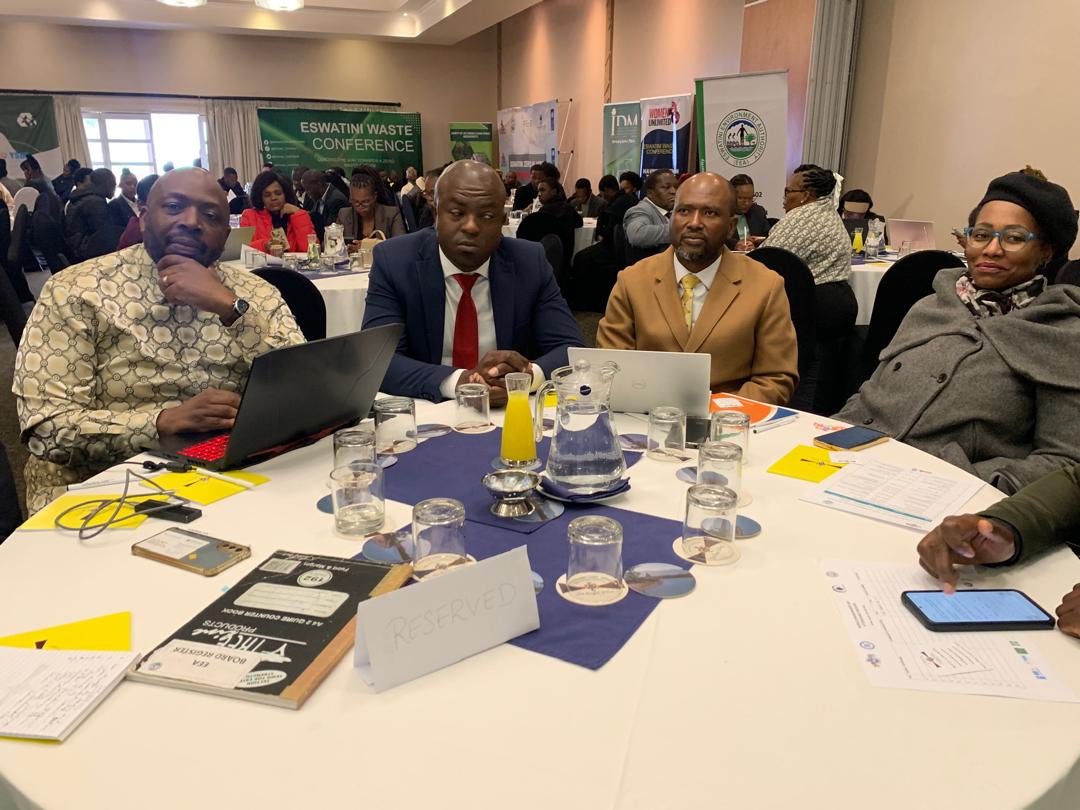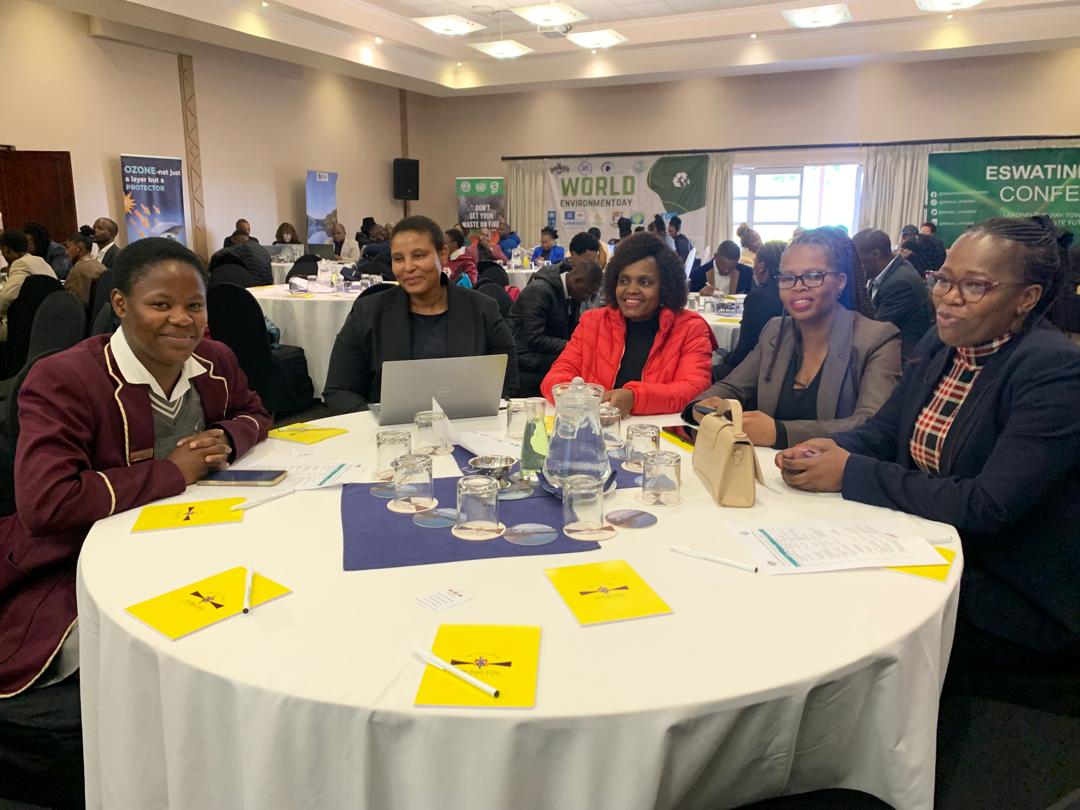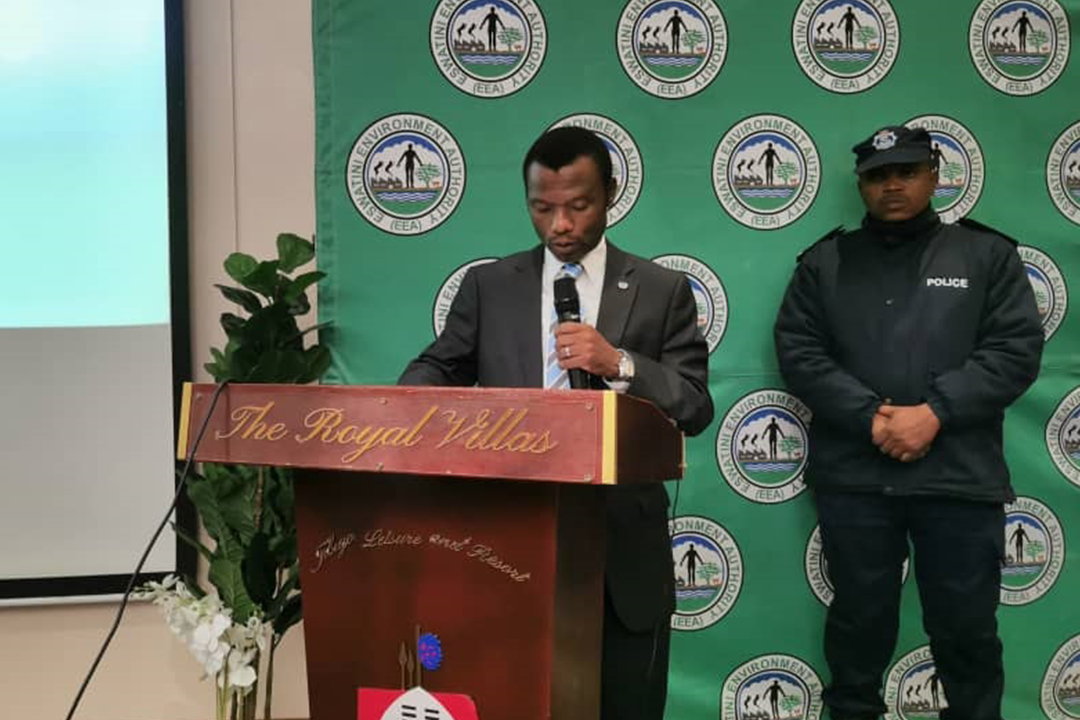BY MBONO MDLULI
EZULWINI – Prime Minister Russell Mmiso Dlamini emphasised the significance of a circular economy in addressing plastic pollution.
The premier made this emphasis during the World Environment Day commemoration on June 5, 2025. He conveyed this message through Minister of Housing and Urban Development, Apollo Maphalala, highlighting that a circular economy aims to keep resources in use for as long as possible, minimising waste and pollution by promoting re-use, repair, and recycling.

The prime minister addressed the plastic pollution crisis, noting that it has become a global emergency. According to the United Nations Environment Programme (UNEP), over 400 million tonnes of plastic are produced annually, with less than 10% recycled. This leftover plastic waste contaminates landfills, rivers, and oceans, posing serious threats to ecosystems and human health. He stated that an estimated 19 to 23 million tonnes of plastic waste leak into aquatic ecosystems each year, disrupting habitats and endangering marine life.
In Eswatini, the situation is dire, with approximately 43% of waste openly burnt and only 17% formally collected. Plastic waste comprises around 17.4% of the total waste stream, underscoring the urgent need for improved waste management systems to protect vulnerable communities.

In response to these challenges, the Global Environment Facility (GEF) has approved USD 4.9 million in funding for a five-year project aimed at reducing risks from Persistent Organic Pollutants (POPs) and Unintentional Persistent Organic Pollutants (U-POPs). This project will enhance national systems for the environmentally sound management of chemicals and waste, with a particular focus on healthcare waste, e-waste, and plastics.
To effectively combat plastic pollution, the Prime Minister stated that Eswatini must transition from a linear to a circular economy, which involves reducing plastic use at the source and promoting initiatives such as the Phatsa Sakho Nawe Campaign, which encourages reusable shopping bags and discourages single-use plastics.
The government has enacted the Plastic Waste Control Regulations of 2021 to limit problematic plastic products and promote sustainable alternatives. There is also a commitment to exploring Extended Producer Responsibility (EPR), which would hold producers accountable for the entire lifecycle of their products.

Eswatini fully supports UNEP’s efforts to develop a legally binding global treaty on plastic pollution, aligning with decisions from the 2019 Conference of the Parties (COP), aimed at minimising plastic waste generation.
The Acting Minister of Tourism and Environmental Affairs, Sikhumbuzo Dlamini, echoed these sentiments, stating that the theme “Beat Plastic Pollution” was a testament to their collective commitment to preserving the natural heritage of Eswatini. He noted that while plastic was cheap and convenient, it could have devastating impacts when mismanaged.
He asserted that the fight against plastic pollution requires collective action from all sectors of society, emphasising that they could not afford to pollute their way into poverty. The Minister recognised that addressing plastic pollution is not just about responsibility but also about seizing the opportunity to build a greener economy and create green jobs. He called for unity in their shared commitment to combat plastic pollution and urged everyone to act diligently, not just on that day, but every day.
He concluded by inviting the Prime Minister to deliver the official remarks for World Environment Day.


